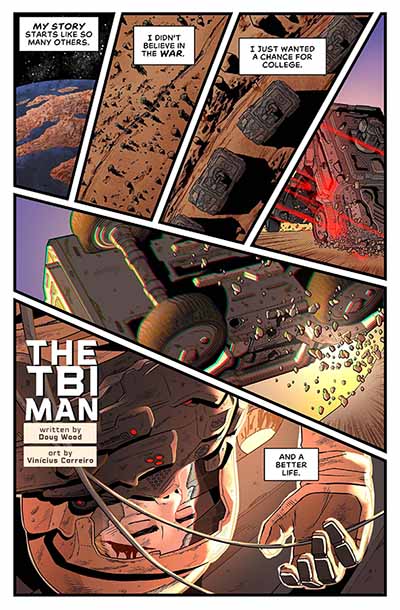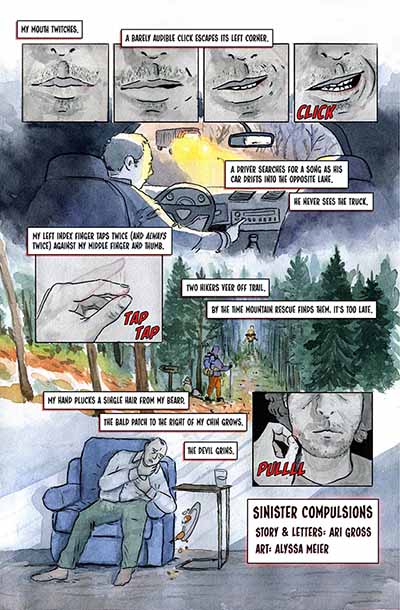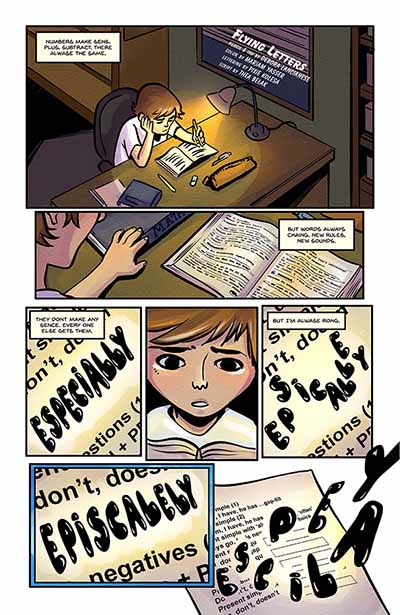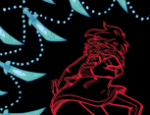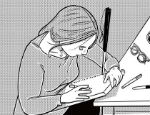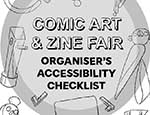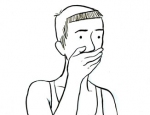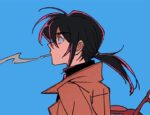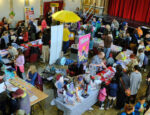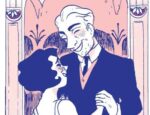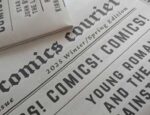Coming to Kickstarter this week the unSEEN/unHEARD: Disability and Neurodivergence Comic Anthology is “a 64-page comic anthology amplifying underrepresented voices in the disability and neurodivergent communities.” Exactly the kind of project we like to get behind here at Broken Frontier. Today, ahead of its launch on Wednesday, our Ellie Egleton speaks with one of the project’s editors C.K. Carpenter about the aims and ethos of the book. Find the campaign page here.
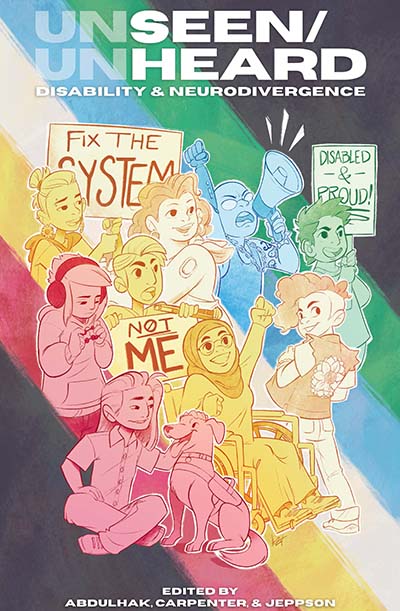
Cover by Al Acevedo
BROKEN FRONTIER: With the unSEEN/unHEARD: Disability and Neurodivergence Comic Anthology soon to launch on Kickstarter, can you please tell us what inspired your project?
C.K. CARPENTER: I’ve been disabled for twenty years with a crippling case of fibromyalgia. As I began to get more involved with the indie comics writing scene a couple of years ago, I realized how little representation there is for people with disabilities, especially stories written from a lived experience perspective. I’ve become very close with Aubrey Lyn Jeppson and Anas Abdulhak (the other two editors on the project), who are neurodivergent, and we’ve had discussions about how poorly they’re represented in media as well.
It dawned on me then to create an anthology that would bring together disabled and neurodivergent creators and give them a chance to voice what it’s like living with a condition. I couldn’t have done this project without the help of Anas and Aubrey; they’ve been my rock through this process, and we’ve all been able to lean on each other when one of us was feeling overwhelmed. We all bring different skill sets to the table.
‘The TBI Man’ by Doug Wood and Vinicius Carreiro
BF: How do you hope to champion the voices of the disabled and neurodivergent communities?
CARPENTER: We just want to be seen and heard, right? That’s what it boils down to. If you have a disabled or neurodivergent character on a show, make sure you have someone from that community in the writing room with you. Similarly, if you’re going to write a comic, make sure the voices heard are from the actual community. As such, we made sure that at least 50% of each creative team belonged to the disability or neurodivergent communities (we didn’t want to put undue stress on people by making it 100%, as that would be a very time-intensive endeavor, and many of us just don’t have the “spoons” for that).
So we’re working closely with 25 creators, the majority of whom are neurodivergent or have a disability, to bring their stories to life and allow them to tell their tales in their own way. The comics might be educational, but they are primarily entertaining, which was important to us, as we didn’t want the stories to come off preachy or read like a manual for a given condition. Our hope coming out of this is that people have a better grasp on what we have to deal with on a daily basis. Simply by putting this book out there, we will be amplifying these underrepresented communities and championing those voices because it makes us more visible.
‘Sinister Compulsions’ by Ari Gross and Alyssa Meier
BF: With 64 pages of story to look forward to, what should we know about the creative teams behind the book?
CARPENTER: For this project, we decided to have an open submissions process rather than an invite-only one. We wanted first-time writers to have just as much of a shot getting in as award-winning ones. Therefore, we have a mix of creators, from people who will have their inaugural published story in the anthology like A.J. Camorlinga (Fries) to well-established creators in the indie comics industry like Richard Fairgray (Legally Blind). This anthology will incorporate multiple genres linked by the common thread of what it’s like to be disabled or neurodivergent. So expect fantasy, horror, sci-fi, slice of life, and romance.
For example, Chuck Howitt-Lease brings us a magical realism tale exploring misophonia associated with autism spectrum disorder. Doug Wood and Vinicius Carreiro use sci-fi, albeit very much grounded in reality, to show us what it’s like to live with a traumatic brain injury and the greatest fears that come along with that. Ari Gross and Alyssa Meier weave together a story tinged with horror that takes a look at living with Obsessive Compulsive Disorder and Tourette Syndrome. There are a lot of names in here that I think will become common household names in the indie comics space in the years to come.
‘Flying Letters’ by Debora Lancianese, Mariam Yasser, Pixie Kolesa and Thea Belak
BF: Why is this a project a reader should most definitely back?
CARPENTER: This isn’t flattery; not a single story in this anthology is a weak link. We truly feel like we have an award-winning title on our hands here. We had a lot of great submissions, and narrowing it down to twelve stories was very difficult. First and foremost, readers should back this project because of the strength of the stories. They entertain, every single one of them, and that’s what’s most important to a reader, right? But they also educate. Most readers out there have no idea what it’s like to truly be disabled or neurodivergent. They can empathize, but they don’t get it. These stories give them a chance to live in our shoes, if only for a moment.
Read an enemies-turned-lovers romance, a sci-fi short about a comical robot, or an illustrated poem, sure, but at the same time, you’re seeing what it’s like to be us, whether it’s dealing with Ankylosing Spondilitis, dyslexia, fibromyalgia, or one of the other dozen or so conditions tackled in this anthology. Plus, readers should back this anthology because there aren’t many projects out there like this, so be a true ally to the disabled and neurodivergent communities by supporting this collection either financially or through word of mouth and social media.
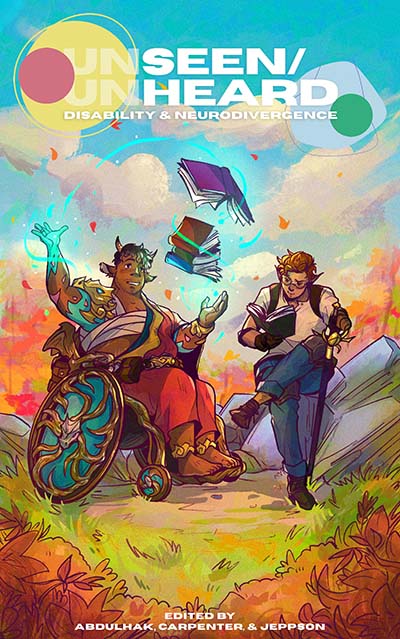
Alternate cover by Arthur Cabezas
What rewards will your campaign offer? And how long will you have to fund?
Barring any problems from Kickstarter, we will be launching on Sep 17 and running until Oct 18.
As for rewards, we’ll be offering an amazing bundle deal for only $6, which will consist of over 300 pages of digital comics featuring books written or edited by the unSEEN/unHEARD editorial team, including the following:
- Ringo-nominated Etheres
- Scott Snyder Presents Tales from the Cloakroom Vol. 1, featuring an Eisner-nominated short comic
- Kill My Boyfriend#1
- Eleutheromania
- Objects in the Mirror
- Wardens
- Awakening
- A Flag to Fly#1
We’ll also have available a three-art print set of the undressed covers, by Al Acevedo, Arthur Cabezas, and Skylar Patridge.
In addition, we’ll have a Disability Pride Flag (the original design for the flag was by Ann Magill and community members) bookmark.
We’ll have a chance to be drawn into the book itself, with a limit of 5.
Finally, we’ll have a limited number of spots to commission Aubrey and Anas for editorial feedback.
BF: Beyond the anthology, what else can people do to amplify the underrepresented voices in the disabled and neurodivergent communities?
CARPENTER: I think when dealing with any marginalized community, at its core, being an ally boils down to speaking up when you see wrongs. This could be something as simple as speaking up when you see someone with a service dog being denied entry into a business or that business demanding they explain their disability (both of which are illegal here in the States at least). Demand representation in the writing rooms for your favorite TV shows or movies that happen to feature disabled or neurodivergent characters. Demand those roles be given to people actually in our communities. Demand greater representation overall in shows and movies and comics. If you can, donate to causes, whether it’s a grass-roots GoFundMe or a bigger non-profit. Being an ally can take many forms, and they all help to amplify our voices.





